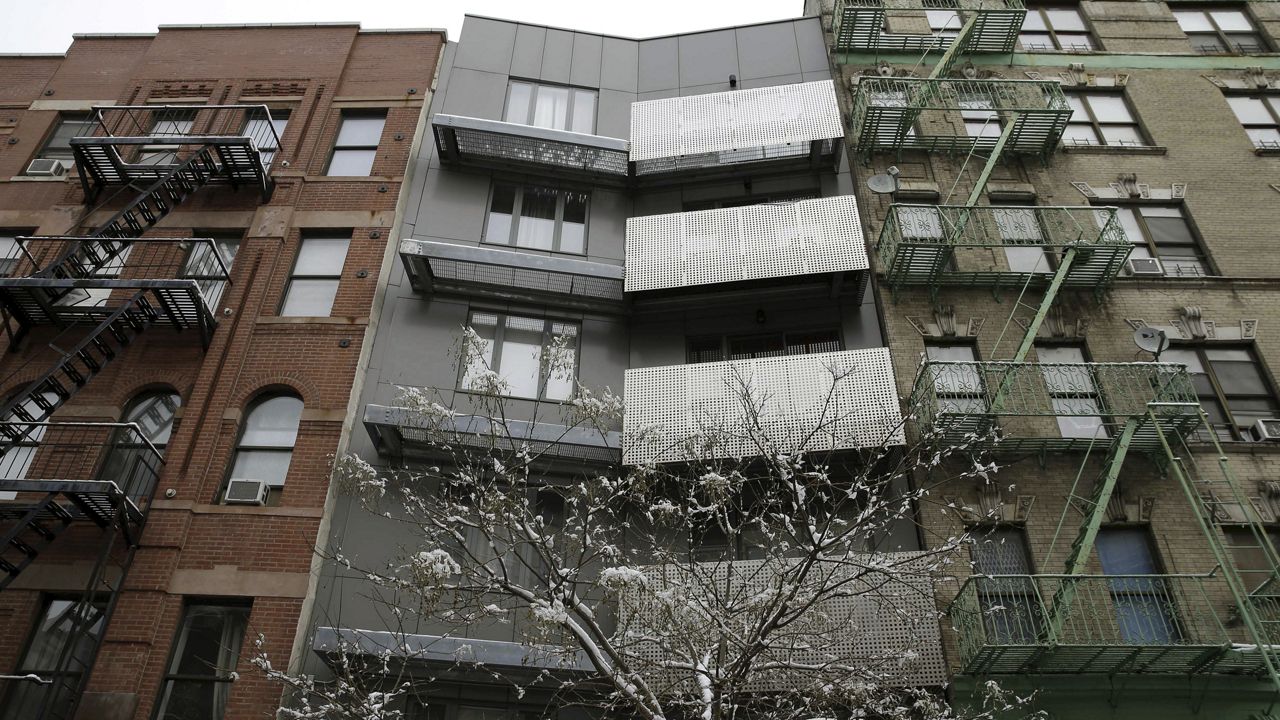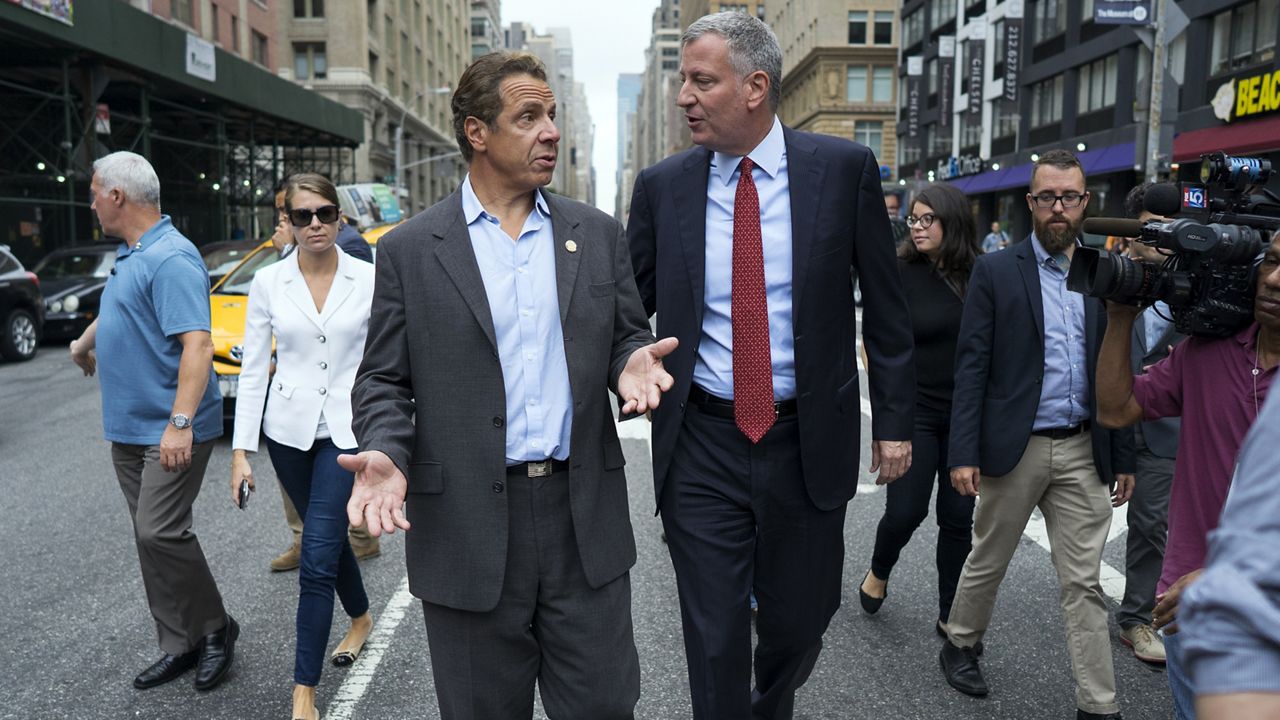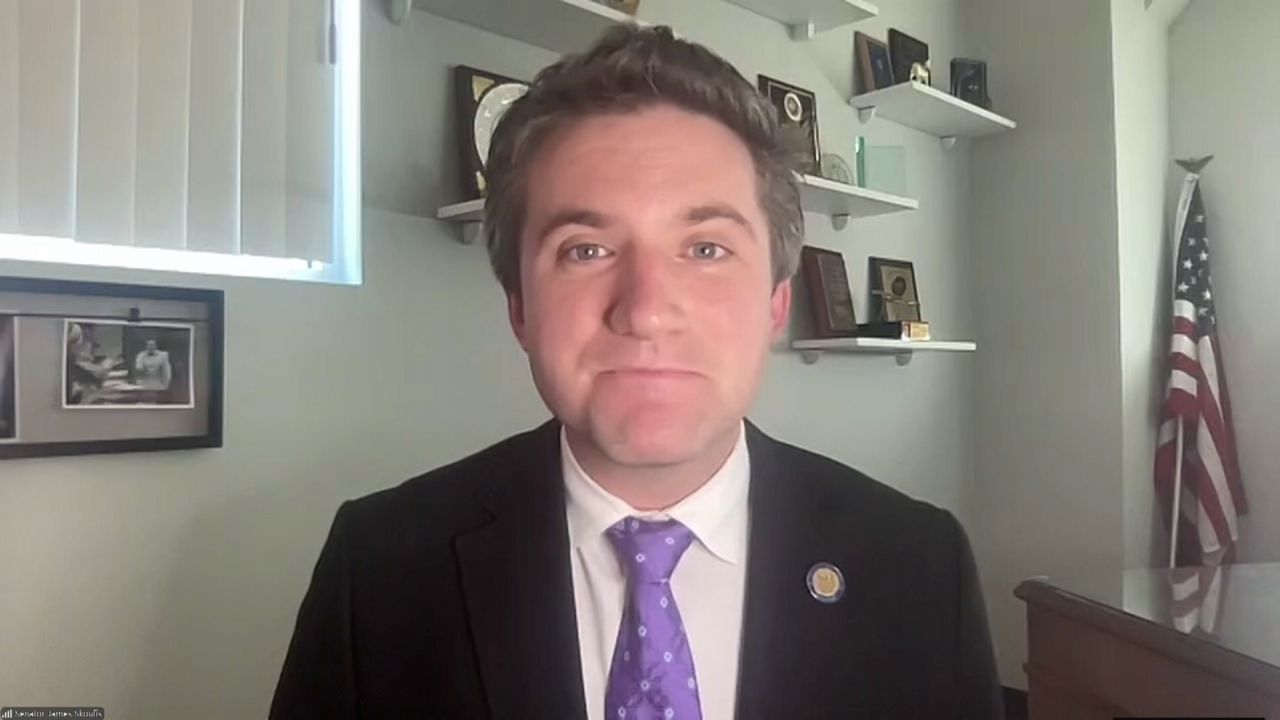Environmental advocates rallied in support of state legislation that would make big oil companies pay for climate change projects in New York.
“The climate damages are too staggering, the costs are too enormous. too much to be born by taxpayers alone," said Blair Horner, director of New York Public Interest Research Group. "When you make a mess, you clean it up, and that’s what we're going to make the oil companies do."
The bill is called the Climate Change Superfund Act — it’s modeled after the landmark superfund law that allows the government to make companies responsible for environmental hazards, like waste sites and spills, help clean them up.
“We will be able to determine what percentage of the damage caused by the oil companies was caused by each of the big companies and then they will be assessed a percentage,” said Bronx Democratic Assemblyman Jeffrey Dinowitz.
Dinowitz is sponsoring the legislation. He expects it to collect $3 billion a year from those companies.
“$3 billion is a lot of money but it’s a tiny amount to them, and a tiny amount of all the money we need to clean up the mess they caused,” Dinowitz said.
In support of the bill, the New York Public Interest Research Group put out a report detailing the need for $1.8 billion tax payer dollars a year for climate projects in New York City, like upgrading the sewer system and protecting the city’s coast. Some of those projects are already underway.
“You’re not going to get the money from some guy in overalls on an oil platform or some oil baron on a yacht,” said Ken Girardin, research director for the conservative think tank, the Empire Center for Public Policy. “It’s money that’s gonna be collected from New York consumers and taxpayers.”
“The higher the cost of selling energy here, the higher the bill,” Girardin said.
“The final cost paid by customers is going to have to go up to reflect the higher cost of doing business into New York,” he said.
Still, State Senator Liz Krueger, another bill sponsor, said the legislation would cut New York’s spending on climate projects.
“This money would go specifically to paying for the mitigation and remediation costs that we know are happening now and we are paying for, so yes, I do think that will decrease the cost we would otherwise have to pay for, all by ourselves,” Krueger said.
The bill has so far passed the Senate, but not the Assembly. The bill’s sponsors say they want Gov. Kathy Hochul to put it in her executive budget. A spokeswoman for the governor did not comment on that, but said she will review all legislation that passes both chambers.









